Esophageal Cancer Treatment in Ahmedabad
What is
Understanding Colorectal Cancer
Esophageal cancer begins in the food pipe (esophagus), the tube that carries food from the throat to the stomach. Early detection is critical as symptoms may appear late. Our center offers advanced Esophageal Cancer Treatment in Ahmedabad, combining expert care with modern therapies for better recovery.
Esophageal cancer can affect swallowing and digestion.
Early treatment offers a better chance of cure.
Personalized care ensures improved quality of life.
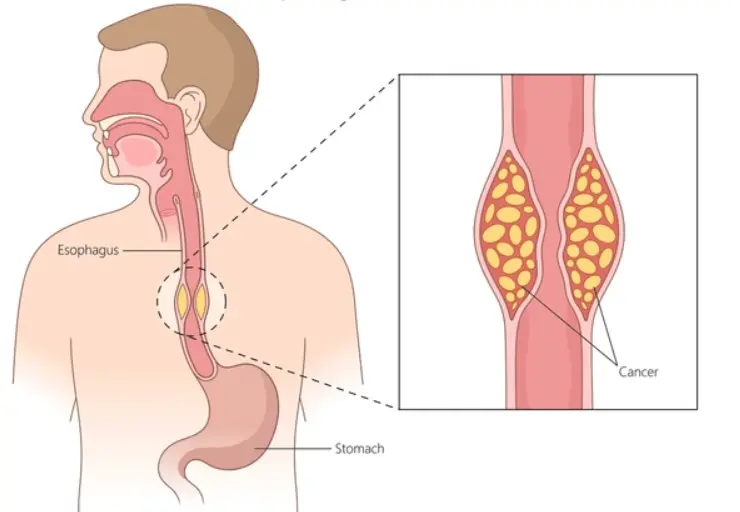
What are the
Types Of Esophageal Cancer
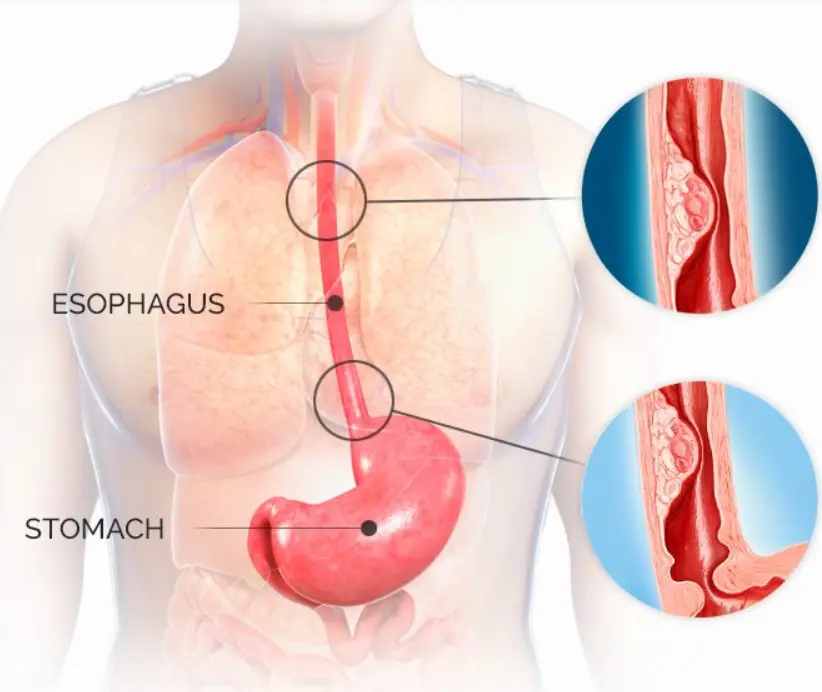
Squamous Cell Cancer
It starts in the flat cells lining the inside of the esophagus. This type is more common in the upper and middle parts of the esophagus and is often linked to habits like smoking and heavy alcohol use.
Adenocarcinoma
It begins in the glandular cells that produce mucus and is usually found in the lower part of the esophagus, near the stomach. It has become more common in recent years, especially in people with long-term acid reflux.
Squamous Cell Cancer
It starts in the flat cells lining the inside of the esophagus. This type is more common in the upper and middle parts of the esophagus and is often linked to habits like smoking and heavy alcohol use.
Adenocarcinoma
It begins in the glandular cells that produce mucus and is usually found in the lower part of the esophagus, near the stomach. It has become more common in recent years, especially in people with long-term acid reflux.
Esophageal Cancer
Signs and Symptoms of Esophageal Cancer

Hoarseness

Difficulty Swallowing

Coughing

Vomiting Blood
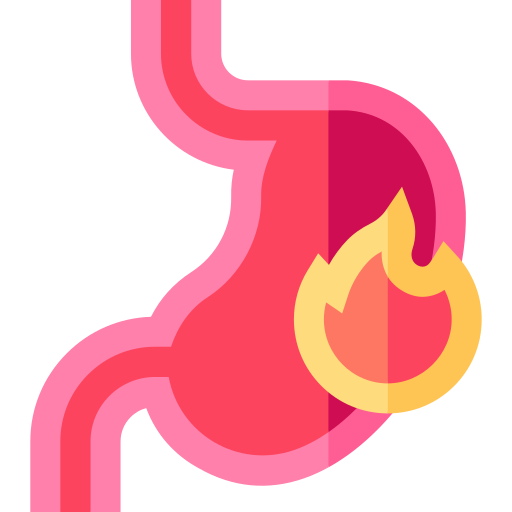
Indigestion and Heartburn

Unintentional Weight Loss
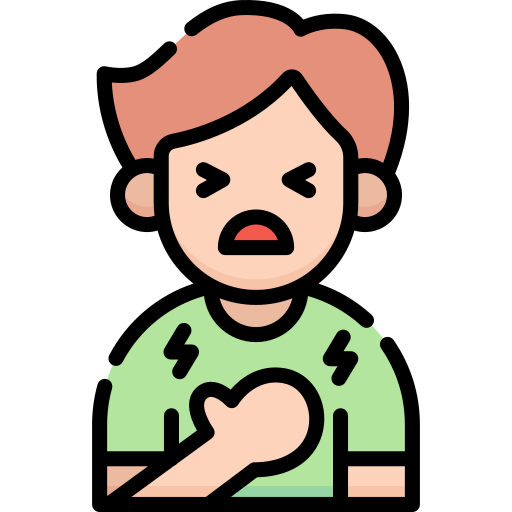
Chest Pain, Pressure Or Burning
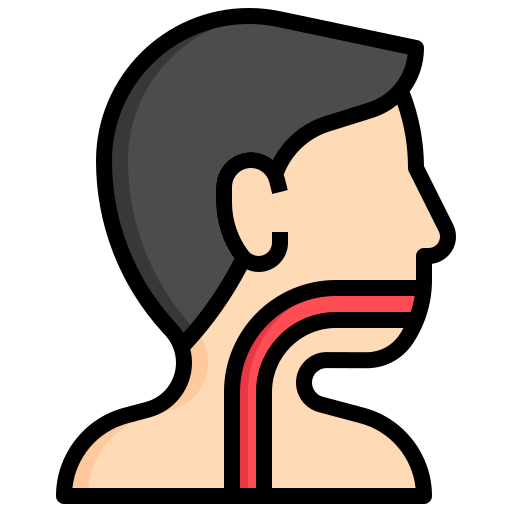
Food Sticking In Esophagus
Esophageal Cancer
Causes
- Smoking and Heavy Alcohol Consumption increases the chance.
- Using tobacco, which includes inhaling and using smokeless tobacco.
- Age Over 50
- Obesity
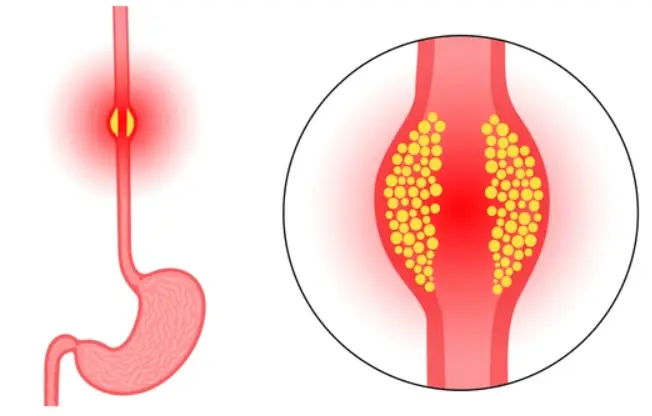
Esophageal Cancer
Diagnosis
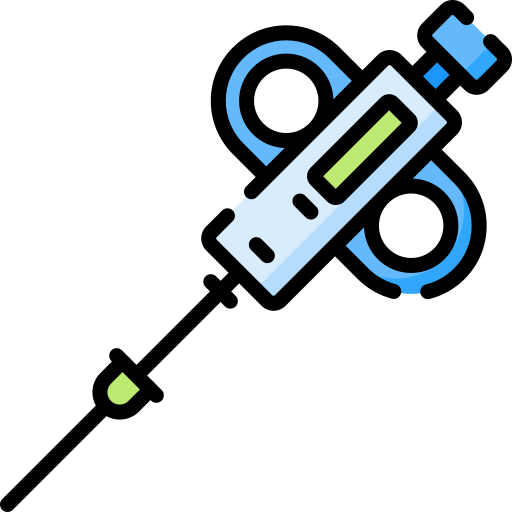
Biopsy
A thin tube called an endoscope is passed down your throat and into your esophagus to collect sample of any suspicious tissue. This sample is then sent to check if there are any cancer cells.

Barium Swallow X-Ray
The patient is asked to drink a liquid that contains barium, which coats the inside of the esophagus. Then, an X-ray is taken. The barium helps highlight the esophagus on the X-ray.
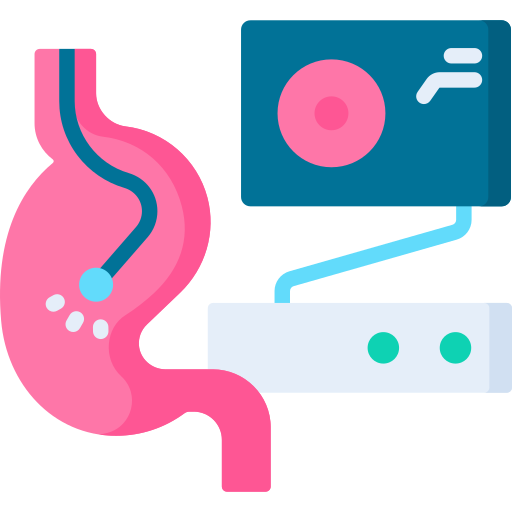
Endoscopy
Your doctor will gently pass a thin, flexible tube with a camera through your mouth and down into your stomach to check for any irritation, damage, or signs of cancer.
Esophageal Cancer
Advanced Esophageal Cancer Treatment in Ahmedabad by Dr. Viraj Lavingia:
Treatment depends on the stage of cancer, overall health, and patient preferences, and usually involves a combination of:
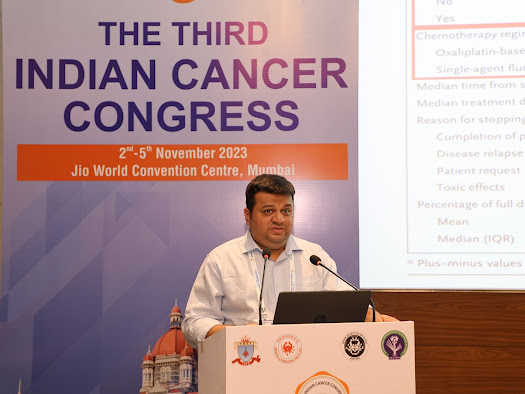
Surgery
Surgery may be done on its own or combined with other treatments to help remove or destroy the cancer cells.
Endoscopy
For very early-stage tumors, when the cancer is still small and limited to the inner lining.
Chemotherapy
Chemotherapy is a treatment that uses special chemicals to kill cancer cells.
Radiotherapy
Radiation therapy uses powerful energy beams, like X-rays, to destroy cancer cells.
Immuotherapy
This uses medicines that specifically attack features or weaknesses in cancer cells.
Why Choose Dr. Viraj Lavingia for Esophageal Cancer Surgery?

1) Specialized Expertise
Dr. Viraj is an expert in gastrointestinal and esophageal cancers, offering advanced surgical and non-surgical treatments for better outcomes.
Have A Question?
Commonly Asked Questions
What are the first signs of esophageal cancer?
Early signs may include difficulty swallowing, chest pain, chronic heartburn, hoarseness, unexplained weight loss, and persistent cough.
Is cancer of the esophagus curable?
If caught early, esophageal cancer may be cured with surgery, sometimes combined with chemotherapy or radiation. In more advanced cases, treatment can help control the cancer and improve quality of life.
What are the treatment options for esophageal cancer?
Treatment may include surgery to remove cancerous tissue, chemotherapy, radiation therapy, targeted therapy, or a combination depending on the stage.
What is the role of surgery in esophageal cancer treatment?
Esophageal cancer surgery is often the primary treatment to remove the tumor, and it is sometimes combined with chemo or radiation for better results.
Want To Discuss With Us?
Start your journey to recovery with one of the leading GI oncologists for colorectal cancer treatment in Ahmedabad, India
